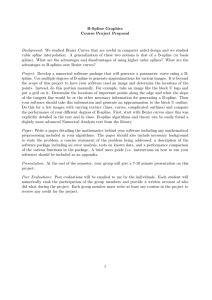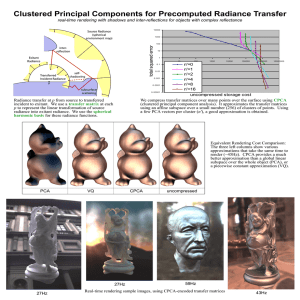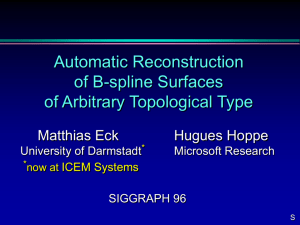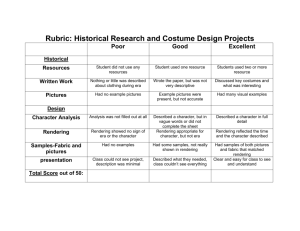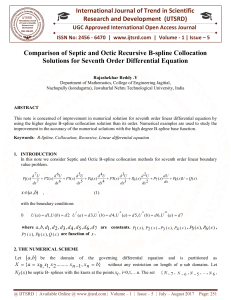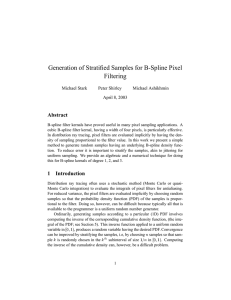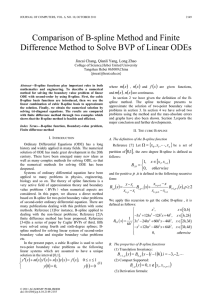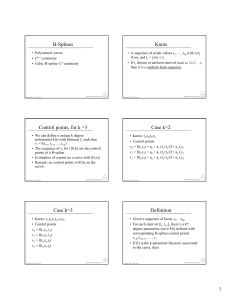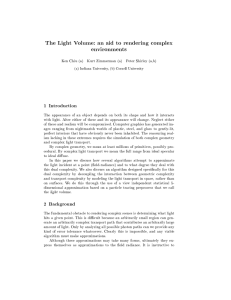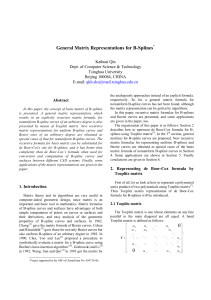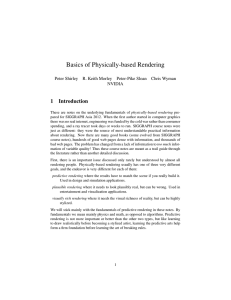B-Splines for Physically-Based Rendering Abstract Michael M. Stark
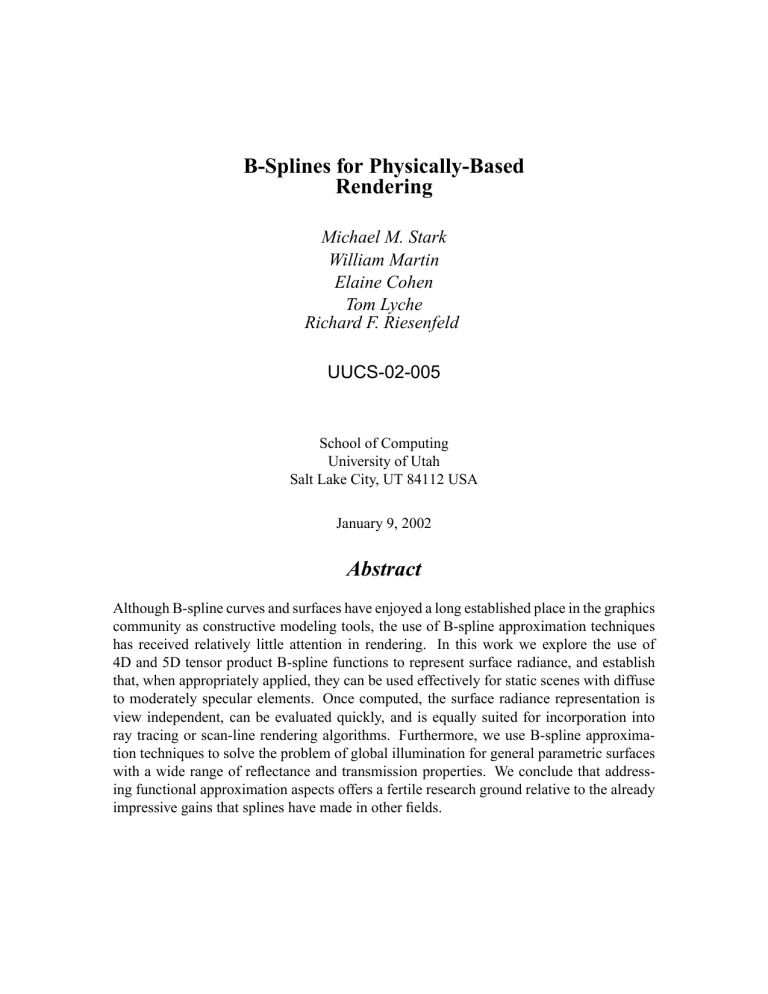
B-Splines for Physically-Based
Rendering
Michael M. Stark
William Martin
Elaine Cohen
Tom Lyche
Richard F. Riesenfeld
UUCS-02-005
School of Computing
University of Utah
Salt Lake City, UT 84112 USA
January 9, 2002
Abstract
Although B-spline curves and surfaces have enjoyed a long established place in the graphics community as constructive modeling tools, the use of B-spline approximation techniques has received relatively little attention in rendering. In this work we explore the use of
4D and 5D tensor product B-spline functions to represent surface radiance, and establish that, when appropriately applied, they can be used effectively for static scenes with diffuse to moderately specular elements. Once computed, the surface radiance representation is view independent, can be evaluated quickly, and is equally suited for incorporation into ray tracing or scan-line rendering algorithms. Furthermore, we use B-spline approximation techniques to solve the problem of global illumination for general parametric surfaces with a wide range of reflectance and transmission properties. We conclude that addressing functional approximation aspects offers a fertile research ground relative to the already impressive gains that splines have made in other fields.
